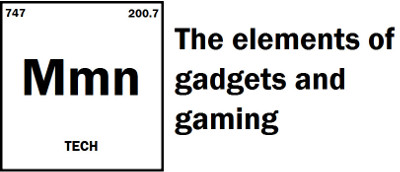

PC Game Pass four months on – was it worth it?
Microsoft has been trying to reinvent the Xbox brand ever since the disastrous launch of the Xbox One some seven years ago. Since then, I think they’ve finally realized that they can’t really compete with Sony and Nintendo on games and hardware specs alone. So they have to go back to what originally made them a household name: services.
Of course it’s not just services, but rather shifting the philosophy of Xbox not as a console, but a service in and of itself. Which is where the PC comes into play. Microsoft’s long forsaken “other” gaming platform. Steam alone registered 120 million active users in 2020. Making it the most popular gaming platform in the world by an impressive margin. More than double what the Xbox One sold across its entire lifetime. So obviously there’s a lot of money being left on the table here that Microsoft can no longer afford to ignore.
Now, they can’t really compete with Steam either. They’re too big and too well established at this point to be dethroned as the hub for PC gaming. So how do you get PC gamers on board? There’s those services again.
In 2017, Microsoft launched Game Pass for the Xbox One. This was followed up by the PC beta in the summer of 2019. It promises us our first true “Netflix” of games. Well, sort of. This is not a streaming platform. All games are downloaded and run locally. What you do get is a rotating library of over 100 third party titles, day one access to first party games, and member discounts in the Xbox store. Additionally, subscribers will also get access to EA Play sometime in 2021, if you’re into sadomasochist and want to suffer through a little Mass Effect: Andromeda.
Pricing starts at $1 for the first month, then $12 for each subsequent month. There’s also the “Ultimate” tier at $17/mo, which gives you access to Game Pass on both PC and Xbox, Xbox Live Gold (which is not needed for online play on PC), xCloud streaming, and additional free perks.
I decided to give it a whirl back in October, and bought the basic $12 tier. What with the CCPVirus still running amok and having a lot more time on my hands. So after four months of using Game Pass, what’s the experience like?
Well, you’ll first need to download the Xbox App, which you can get from the Microsoft Store, and set up an XBL account. This acts as yet another launcher to add to your growing collection of launchers. The app itself is well laid out though with its content organized into neat categories. It also has a still rudimentary social function that allows you to connect with friends on Xbox Live. While the app itself has been incrementally improving since I got it, I did notice it’s still quite laggy when loading store content. Certainly nowhere near as snappy as other launchers. Fortunately, it seems Microsoft has cut down on the huge amount of memory it consumes. At least it seems.
But we’re really here for the games. So what do you get included with your subscription. Well, at the time of writing, PC Game Pass has 233 titles available to download at no extra cost. There’s a very solid collection of first party games available; such as the entire Halo collection, Flight Simulator 2020, Ori, Sea of Thieves, Gears 5, Forza, and Age of Empires. Microsoft is also starting to fatten out their selection of second party titles since acquiring several studios. Bethesda games like Doom Eternal, Rage 2, Dishonored 2, Wolfenstein Youngblood, and Fallout 76 have recently been added. We also have Obsidian’s epic space RPG The Outer Worlds.
Third party games are mostly indie titles, as we’ve come to expect from these services. However, there’s a few surprises here and there. Games like Control, Dragon Quest IX, and several Final Fantasies. Sega is also well represented with Company of Heroes 2, Two Point Hospital, and pretty much the entire Yakuza collection except Like A Dragon. What indies we do have are fairly strong and well recognized titles.
There’s a good variety here that should appeal to just about every gamers’ tastes. It also gives you access to a wide variety of gems you may have been on-the-fence about buying. And there’s certainly enough of that content to keep you busy for quite a long time. It doesn’t feel like they’re just dumping cheap licenses on the service to make a quick buck.
That all sounds great, so what are the caveats? Well, the first and most important thing to keep in mind is that these games are really just being rented. When something gets rotated out of the library, you can still play it as much as you want provided you still have it installed. However, you won’t be able to re-download it should you delete it. In that case, you’ll need to buy it, though usually at a discounted price. This is different from Games with Gold or PlayStation Plus, where you have a limited time to acquire the game, but can download it as many times as you want there after. Of course both types of service require you to maintain a subscription in order to keep playing.
The second issue is that Game Pass, being a Microsoft product, only works with Windows 10. So Mac and Linux gamers are being left out in the cold. It also uses UWP apps instead of conventional win32 executables. While the experience has improved a great deal since it first launched on Windows 8, but there’s still numerous drawbacks. Namely limited mod support and the occasional weird technical glitches that don’t seem present in the the win32 versions. Microsoft has acknowledged that developers do prefer the older architecture, so it’s likely more Game Pass titles will use it in the future.
So is it ultimately worth it? Well, as always that comes with a big fat “depends”. For less than the price of two new release Triple A games per year, you’re getting an awful lot of content here. Most of that content is pretty decent too. And unlike Stadia and PS Now, it seems Microsoft is treating Game Pass seriously and not as just some side project. It continues to improve incrementally each month, and has a lot of potential down the road. It’s certainly a very affordable path to a lot of glorious PC gaming. Especially if you’re not a digital hoarder like me.
That said, a lot of these games can be purchased individually for a relatively cheap price. So if you don’t game a lot, or don’t have a lot of time to game, you may be better off just buying them outright instead of bothering with subscriptions. Those who aren’t fans of Microsoft’s (or EA’s) own exclusive titles will also find less to whet their whistle. While there’s a lot of great indie games here, there’s not a lot of “meatier” third party content. For existing Xbox owners though, that Ultimate tier is certainly a no-brainer.
So how could they improve the service for me? Well, for starters they could use older games as a cheap and easy way to fatten up their library. There’s a lot of DOS and Windows titles from PC’s first golden age that deserve a second lease on life. I’d also like to see them port over their OG Xbox and Xbox 360 emulation to the service. There’s a lot of great games, especially on the 360, that never saw a PC release. Games like the original Red Dead Redemption. This has proven very successful on the One and Series consoles, so it would be nice if they were free with the subscription, or at least purchasable. Other than that, all I can say is just get more third party licensing deals on there, and port as many Xbox exclusives over as you can.


